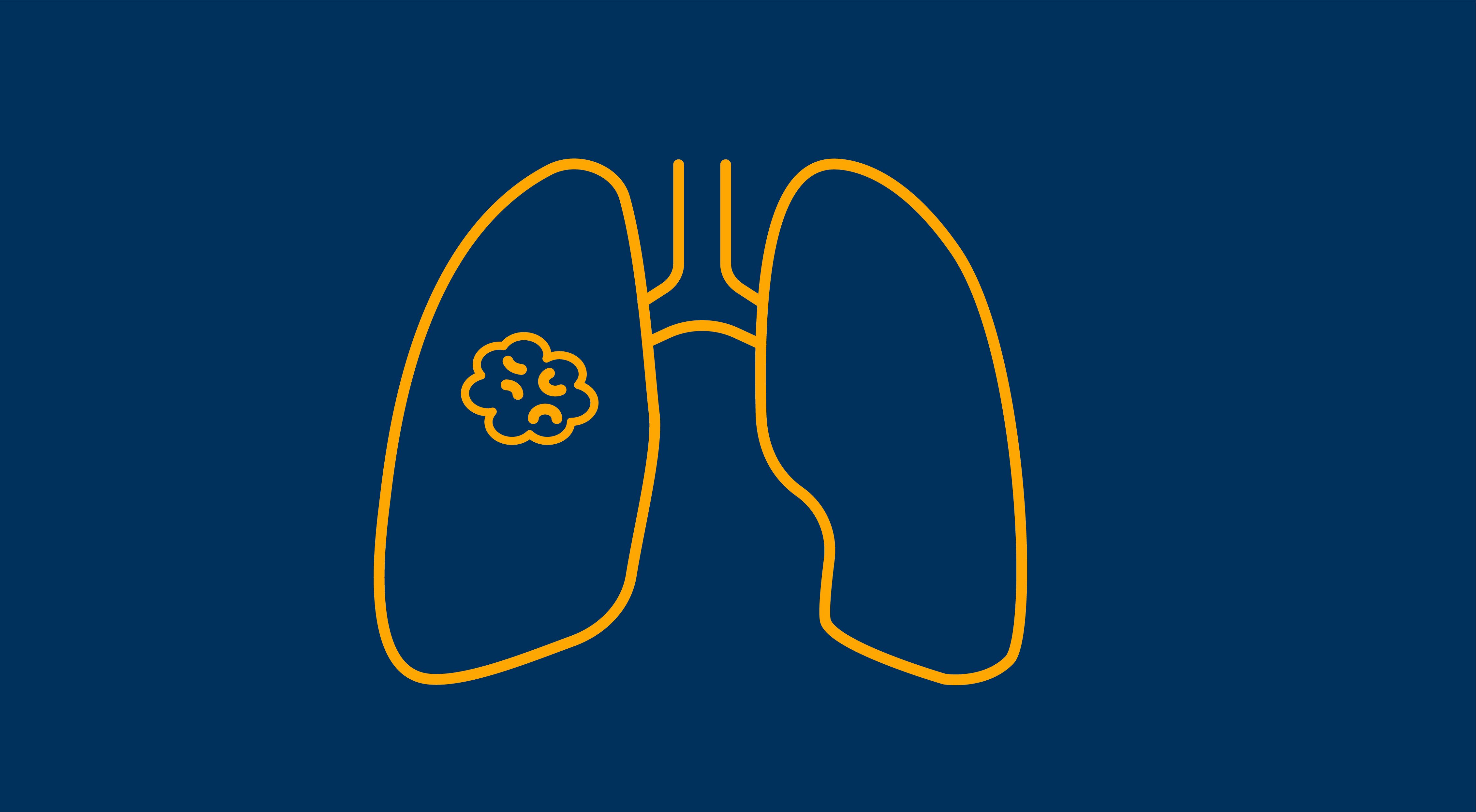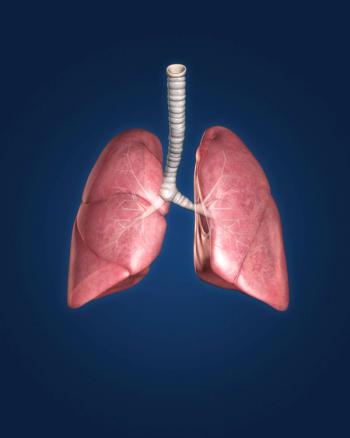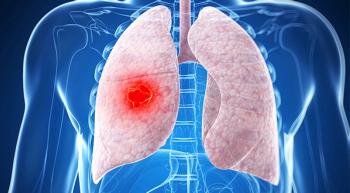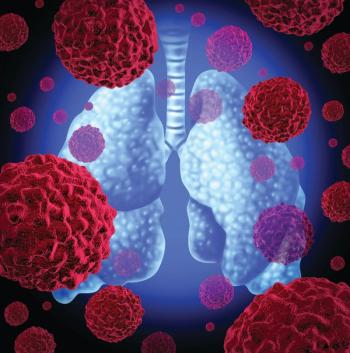
Identifying targets early can help forestall resistance and improve the efficacy of osimertinib, a EGFR tyrosine kinase inhibitor, in the first-line setting.


Identifying targets early can help forestall resistance and improve the efficacy of osimertinib, a EGFR tyrosine kinase inhibitor, in the first-line setting.

The ongoing CheckMate-73L trial seeks to determine if nivolumab plus ipilimumab following nivolumab plus chemoradiation could become the new standard of care in treating non-small cell lung cancer, says Nagla F. Abdel Karim, MD.

Patients with non-small cell lung cancer driver mutations respond better to targeted treatments compared to chemotherapy, yet less than half of these patients receive next generation sequencing.

The continued development of KRAS G12C inhibitors for the treatment of non-small cell lung cancer shows that researchers are making breakthroughs in the treatment landscape.

Researchers are using biomarker-testing to determine which patients with lung cancer might benefit from PARP inhibitors.

Bispecific antibodies like amivantamab-vmjw, zenocutuzumab, and tarlatamab, are novel in the landscape of lung cancer treatment due to their ability to bridge cells and inhibit tumor growth.

Beth Sandy, MSN, CRNP, OCN, says that she would like to see 95% of eligible patients receive biomarker testing in the next 5 to 10 years.

Early lines of treatment for non-small cell lung cancer treatment might be effectively guided by minimal residual disease.

Whether or not obesity should be considered a risk factor for non-small lung cancer might be determined by how it is measured.

African American, Asian, and Hispanic patients with limited-stage small cell lung cancer displayed superior survival outcomes compared with White patients, indicating that race might be linked with survival in this disease.

The International Association for the Study of Lung Cancer (IASLC) has published an updated consensus on the use of liquid biopsy in screening non-small cell lung cancer (NSCLC).

The preliminary results of an early-phase study of rigosertib combined with nivolumab for the treatment of advanced metastatic KRAS-mutated non-small cell lung cancer are scheduled to be presented at an upcoming medical conference.

Out of 30 patients, 16 demonstrated significant pathological responses and 8 achieved a complete pathological response.

Sotorasib produced continued durable clinical benefit in patients with pretreated KRAS p.G12C+ NSCLC.

Previously treated patients with non-small cell lung cancer tended to have better responses with Retevmo than they did with prior treatments.

Pralsetinib elicited promising responses and tolerability in patients with RET fusion-positive non-small cell lung cancer (NSCLC), including those who were not eligible for platinum-based therapy.

Sotorasib is the first targeted therapy approved for KRAS-mutant non-small cell lung cancer.

Molecular testing is more essential than ever, thanks to the targeted therapy options for non-small cell lung cancer.

This is the first targeted therapy regimen approved for this patient population.

A biologics license application for sintilimab injection plus pemetrexed and platinum-based chemotherapy for the frontline treatment of patients with nonsquamous non–small cell lung cancer has been accepted for FDA review.

New immunotherapy combinations are being explored in the small cell lung cancer space.

Edward S. Kim, MD, highlights the impact of osimertinib in the treatment of patients with EGFR-mutant non–small cell lung cancer, next steps with the agent, and the importance of early genetic testing to provide personalized care.

An expert gives an overview of recent advancements in the lung cancer space.

Wade T. Iams, MD, discusses the efficacy and safety of lurbinectedin in patients with small cell lung cancer, the impact of its approval on the paradigm, and remaining questions regarding its use.

First-line treatment with camrelizumab, an investigational PD-1 inhibitor, plus chemotherapy induced robust and durable clinical responses in patients with advanced squamous non–small cell lung cancer.